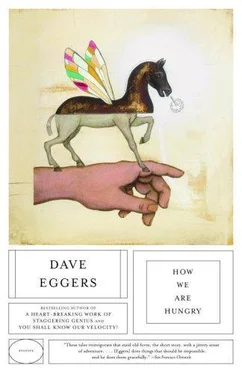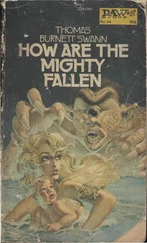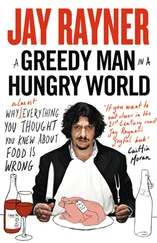Dave Eggers - How We Are Hungry
Здесь есть возможность читать онлайн «Dave Eggers - How We Are Hungry» весь текст электронной книги совершенно бесплатно (целиком полную версию без сокращений). В некоторых случаях можно слушать аудио, скачать через торрент в формате fb2 и присутствует краткое содержание. Год выпуска: 2005, Издательство: Vintage Canada, Жанр: Современная проза, на английском языке. Описание произведения, (предисловие) а так же отзывы посетителей доступны на портале библиотеки ЛибКат.
- Название:How We Are Hungry
- Автор:
- Издательство:Vintage Canada
- Жанр:
- Год:2005
- ISBN:нет данных
- Рейтинг книги:3 / 5. Голосов: 1
-
Избранное:Добавить в избранное
- Отзывы:
-
Ваша оценка:
- 60
- 1
- 2
- 3
- 4
- 5
How We Are Hungry: краткое содержание, описание и аннотация
Предлагаем к чтению аннотацию, описание, краткое содержание или предисловие (зависит от того, что написал сам автор книги «How We Are Hungry»). Если вы не нашли необходимую информацию о книге — напишите в комментариях, мы постараемся отыскать её.
A Heartbreaking Work of Staggering Genius
How We Are Hungry — читать онлайн бесплатно полную книгу (весь текст) целиком
Ниже представлен текст книги, разбитый по страницам. Система сохранения места последней прочитанной страницы, позволяет с удобством читать онлайн бесплатно книгу «How We Are Hungry», без необходимости каждый раз заново искать на чём Вы остановились. Поставьте закладку, и сможете в любой момент перейти на страницу, на которой закончили чтение.
Интервал:
Закладка:
Dave Eggers
How We Are Hungry
THIS BOOK IS FOR CHRIS
ANOTHER
I’D GONE TO EGYPT, as a courier, easy. I gave the package to a guy at the airport and was finished and free by noon on the first day. It was a bad time to be in Cairo, unwise at that juncture, with the poor state of relations between our nation and the entire region, but I did it anyway because, at that point in my life, if there was a window at all, however small and discouraged, I would—
I’d been having trouble thinking, finishing things. Words like anxiety and depression seemed apt then, in that I wasn’t interested in the things I was usually interested in, and couldn’t finish a glass of milk without deliberation. But I didn’t stop to ruminate or wallow. Diagnosis would have made it all less interesting.
I’d been a married man, twice; I’d been a man who turned forty among friends; I’d had pets, jobs in the foreign service, people working for me. Years after all that, somewhere in May, I found myself in Egypt, against the advice of my government, with mild diarrhea and alone.
There was a new heat there, dry and suffocating and unfamiliar to me. I’d lived only in humid places — Cincinnati, Hartford — where the people I knew felt sorry for each other. Surviving in the Egyptian heat was invigorating, though — living under that sun made me lighter and stronger, made of platinum. I’d dropped ten pounds in a few days but I felt good.
This was a few weeks after some terrorists had slaughtered seventy tourists at Luxor, and everyone was jittery. And I’d just been in New York, on the top of the Empire State Building, a few days after a guy opened fire there, killing one. I wasn’t consciously following trouble around, but then what the hell was I doing—
On a Tuesday I was by the pyramids, walking, loving the dust, squinting; I’d just lost my second pair of sunglasses. The hawkers who work the Gizeh plateau — really some of the least charming charmers the world owns — were trying to sell me anything — little scarab toys, Cheops keychains, plastic sandals. They spoke twenty words of a dozen languages, and tried me with German, Spanish, Italian, English. I said no, feigned muteness, got in the habit of just saying “Finland!” to them all, sure that they didn’t know any Finnish, until a man offered me a horseback ride, in American English, hooking his r ’s obscenely. They really were clever bastards. I’d already gotten a brief and expensive camel ride, which was worthless, and though I’d never ridden a horse past an amble and hadn’t really wanted to, I followed him on foot.
“Through the desert,” he said, leading me past a silver tourist bus, Swiss seniors unloading. I followed him. “We go get horse. We ride to the Red Pyramid,” he said. I followed. “You have your horse yourself,” he said, answering my last unspoken question.
I knew the Red Pyramid had just been reopened, or was about to be reopened, though I didn’t know why they called it Red. I wanted to ride on a horse through the desert. I wanted to see if this man — slight, with brown teeth, wide-set eyes, a cop mustache — would try to kill me. There were plenty of Egyptians who would love to kill me, I was sure, and I was ready to engage in any way with someone who wanted me dead. I was alone and reckless and both passive and quick to fury. It was a beautiful time, everything electric and hideous. In Egypt I was noticed, I was yelled at by some and embraced by others. One day I was given free sugarcane juice by a well-dressed man who lived under a bridge and wanted to teach at an American boarding school. I couldn’t help him but he was sure I could, talking to me loudly by the juice bar, outside, in crowded Cairo, while others eyed me vacantly. I was a star, a heathen, an enemy, a nothing.
At Gizeh I walked with the horse man — he had no smell— away from the tourists and buses, and down from the plateau. The hard sand went soft. We passed an ancient man in a cave below ground, and I was told to pay him baksheesh, a tip, because he was a “famous man” and the keeper of that cave. I gave him a dollar. The first man and I continued walking, for about a mile, and where the desert met a road he introduced me to his partner, a fat man, bursting from a threadbare shirt, who had two horses, both black, Arabian.
They helped me on the smaller of the two. The animal was alive everywhere, restless, its hair marshy with sweat. I didn’t tell them that I’d only ridden once before, and that time at a roadside Fourth of July fair, walking around a track, half-drunk. I was trying to find dinosaur bones in Arizona— I thought, briefly, that I was an archeologist. I still don’t know why I was made the way I am.
“Hesham,” the horse man said, and jerked his thumb at his sternum. I nodded.
I got on the small black horse and we left the fat man. Hesham and I trotted about five miles on the rural road, newly paved, passing farms while cabs shot past us, honking. Always the honking in Cairo! — the drivers steering with the left hand to be better able, with their right, to communicate every nuance of their feelings. My saddle was simple and small; I spent a good minute trying to figure out how it was attached to the horse and how I would be attached to it. Under it I could feel every bone and muscle and band of cartilage that bound the horse together. I stroked its neck apologetically and it shook my hand away. It loathed me.
When we turned from the road and crossed a narrow gorge, the desert spread out in front of us without end. I felt like a bastard for ever doubting that it was so grand and acquiescent. It looked like a shame to step on it, it was shaped so carefully, layer upon layer of velveteen.
On the horse’s first steps onto sand, Hesham said: “Yes?”
And I nodded.
With that he whipped my horse and bellowed to his own and we were at a gallop, in the Sahara, heading up a dune the size of a four-story building.
I’d never galloped before. I had no idea how to ride. My horse was flying; he seemed to like it. The last horse I’d been on had bitten me constantly. This one just thrust his head rhythmically at the future.
I slid to the back of the saddle and pulled myself forward again. I balled the reins into my hand and leaned down, getting closer to the animal’s body. But something or everything was wrong. I was being struck from every angle. It was the most violence I’d experienced in years.
Hesham, seeing me struggle, slowed down. I was thankful. The world went quiet. I regained my grip on the reins, repositioned myself on the saddle, and leaned forward. I patted the horse’s neck and narrowly missed his teeth, which were now attempting to eat my fingers. I felt ready again. I would know more now. The start had been chaos because it was so sudden.
“Yes?” Hesham said.
I nodded. He struck my horse savagely and we bolted.
We made it over the first dune and the view was a conqueror’s, oceans upon oceans, a million beveled edges. We flew down the dune and up the next. The horse didn’t slow and the saddle was punishing my spine. Holy Christ it hurt. I wasn’t in sync with the horse — I tried but neither the fat man nor the odorless one I was following had given me any direction and my spine was striking the saddle with enormous force, with terrible rhythm, and soon the pain was searing, molten. I was again and again being dropped on my ass, on marble, from a hundred feet—
I could barely speak enough to tell Hesham to slow down, to stop, to rest my spine. Something was being irrevocably damaged, I was sure. But there was no way to rest. I couldn’t get a word out. I struggled for air, I tried to ride higher in the saddle, but couldn’t stop because I had to show Hesham I was sturdy, unshrinking. He was glancing back at me periodically and when he did I squinted and smiled in the hardest way I could.
Читать дальшеИнтервал:
Закладка:
Похожие книги на «How We Are Hungry»
Представляем Вашему вниманию похожие книги на «How We Are Hungry» списком для выбора. Мы отобрали схожую по названию и смыслу литературу в надежде предоставить читателям больше вариантов отыскать новые, интересные, ещё непрочитанные произведения.
Обсуждение, отзывы о книге «How We Are Hungry» и просто собственные мнения читателей. Оставьте ваши комментарии, напишите, что Вы думаете о произведении, его смысле или главных героях. Укажите что конкретно понравилось, а что нет, и почему Вы так считаете.












